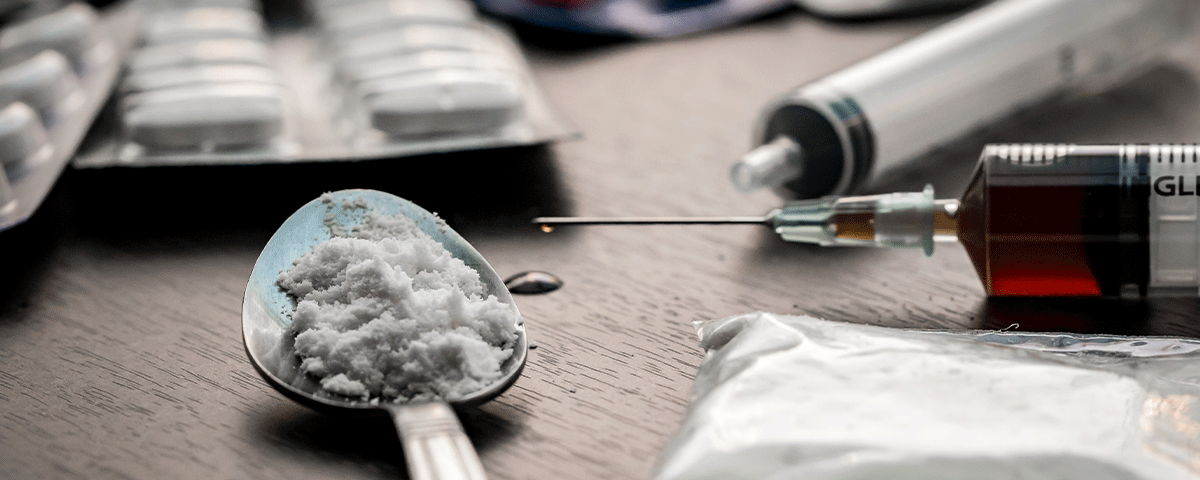Every year, thousands of Illinois residents suffer from addiction, a chronic and progressive disease that can negatively impact a person’s health, relationships, finances, and overall well-being.
When someone suffers from a substance use disorder, they struggle to control their use of drugs or alcohol, regardless of the repercussions their habit may have. As a drug rehab center in Gilman, we’re aware of the prevalence of drug abuse in Illinois and how it affects people’s lives. Keep reading to learn more about the most commonly abused drugs in Illinois and their side effects.
Illinois Substance Abuse Statistics
When people think of addiction, they often think of illegal street drugs like cocaine, heroin, or methamphetamine, or even designer drugs like bath salts, spice, and ecstasy. However, regardless of the category they’re a part of, all illicit drugs can be dangerous.
Drug addiction in Illinois is strongly tied to heroin, which is widely considered one of the nation's most addictive and harmful substances. Because of the state’s central location and being home to a big city like Chicago, Illinois is a convenient hub for drug trafficking and distribution. Because heroin is so popular in Illinois cities like Chicago, the drug often reaches other parts of the state. And although heroin is a major problem in Illinois, other drugs also affect the state’s residents.
Below are some statistics on substance abuse in Illinois:
- Over 5,500 deaths among Illinois residents each year (5% of all deaths) are related to drug and alcohol abuse.1
- The annual Illinois economic costs related to drug, alcohol, and tobacco use are over $3.5 billion.1
- The overall drug overdose rate in Illinois was 18.9 per 100,000 people in 2016, making it 28th in the country.3
- In 2017, the overdose rate increased to 2,772 fatalities.3
- Nearly 80% of drug overdose deaths in Illinois involved opioids in 2018, resulting in 2,169 fatalities.2
- In 2018, deaths involving synthetic opioids (such as fentanyl and fentanyl analogs) rose to 1,568.2
As a result of the opioid epidemic in the United States, more and more people need opioid addiction treatment in Illinois. Banyan Treatment Centers Heartland is an addiction treatment facility in Gilman, Illinois, that offers a variety of substance abuse treatment options, including treatment for illicit and prescription opioids like heroin and oxycodone. We can help you or a loved one recover from addiction and avoid further problems that can occur from drug abuse.
What Are The Most Commonly Abused Drugs in Illinois?
Heroin, alcohol, and cocaine are the three most commonly abused drugs in Illinois. We’re sharing more about these drugs, their side effects, and how they’ve affected Illinois residents below.
Alcohol
The abuse of alcohol in Illinois affected more males and females in the state alone than those of the nation as a whole. 16.4% of females in Illinois reported excessive drinking in 2020, 2.3% over the national average of female drinking in the U.S. (14.1%). 27.2% of males in Illinois reported excessive drinking in the same year, 4.5% over the national male average of 22.7%.4 Alcohol abuse is a huge problem in the U.S. as a whole, causing thousands of deaths every year. As with any other substance of abuse, binge drinking can lead to various side effects, including addiction.
Some common side effects of alcohol include:
- Slurred speech
- Drowsiness
- Nausea and vomiting
- Stomach pains
- Diarrhea
- Headaches
- Difficulties breathing
- Distorted vision and hearing
- Impaired judgment
- Decreased perception
- Lack of coordination
- Unconsciousness
- Dehydration
- Coma
- Blackouts
When excessive drinking becomes a frequent habit, it can create tolerance. Tolerance is when a person’s body has become accustomed to a certain amount of drugs or alcohol and needs more of them to experience the same effect. The more a person drinks, the more dependent they become on alcohol. At this stage, they have a chance to quit altogether, but the discomfort of withdrawal symptoms causes them to continue drinking. Eventually, long-time heavy drinkers end up with alcoholism, a lifetime disease. However, treatment is available. Professional alcohol treatment is the best way to address this condition and give the individual the best chance at long-term sobriety. Alcohol is also one of the most dangerous substances to withdraw from, which is why our alcohol detox at Banyan Heartland is medically assisted. We offer our patients 24-hour care and medication (as needed) while detoxing from any drug or alcohol to ensure they’re as safe and comfortable as possible.
Heroin
Heroin is an opioid that is illegal for its lack of medical purpose and a high potential for abuse. The use of heroin in Illinois and other areas of the country usually begin with prescription drug abuse. However, prescription drug users often turn to heroin because it’s a cheaper and more accessible alternative. Long-term heroin abuse can cause a variety of side effects and long-term health problems.
Some common side effects of heroin abuse include:
- Dry mouth
- Nausea and vomiting
- Flushed skin
- Heavy feelings in the arms and legs
- Difficulties concentrating
- Slipping in and out of consciousness and semi-consciousness
- Insomnia
- Collapsed veins in users who inject heroin intravenously
- Damaged tissue in the nose for those who snort heroin
- Infection of the heart lining and valves
- Cardiovascular disease
- Abscesses (swollen tissue filled with pus in the skin)
- Liver and kidney disease and failure
- Pneumonia and other lung complications in people who smoke heroin
- Mental disorders like depression and antisocial personality disorder
- Fertility problems
- Irregular menstrual cycles in women
If you or a loved one begins showing signs of heroin addiction like extreme weight loss, mood swings, changes in friend groups, and drug paraphernalia like dirty needles and burnt spoons, get help immediately. Our treatment facility also offers heroin addiction treatment in Illinois that addresses the physical and psychological effects of heroin, as well as any underlying issues that contribute to the addiction.
Cocaine
Cocaine is a stimulant drug that works by stimulating the brain’s reward pathway, also known as the mesolimbic dopamine system. This area of the brain is associated with reward, emotions, and motivation. Normally, neurons in the brain release dopamine into a small gap between two neurons called a synapse, where it binds to proteins on neurons called dopamine receptors. A protein called transporters then removes dopamine from the synapse to be recycled. Cocaine inhibits this process by binding to the dopamine transporter, preventing it from removing dopamine from the synapse. Dopamine then accumulates within this gap between neurons, producing an amplified sense of pleasure and euphoria, which are the main characteristics of cocaine high. Because this high is so pleasurable for users, quitting is made more difficult.
Long-term cocaine abuse can lead to a variety of side effects, such as:
- Heightened sensitivity to light, sound, and touch
- Intense happiness and euphoria
- Anger
- Irritability
- Decrease appetite
- Extreme weight loss
- Headaches
- Convulsions
- Seizures
- Cardiovascular disease
- Sexual dysfunction
- Fertility problems
- Increased risk of HIV or hepatitis in users who inject cocaine
- Loss of smell, frequent nose bleeds, and difficulties swallowing in users who snort cocaine
The intense high and cravings that cocaine produces make it difficult for users to quit on their own. The physical effects of cocaine are also powerful, making it a dangerous drug to detox from. Our rehab in Gilman, Illinois, also offers a cocaine detox and treatment program for those who are addicted to this drug and need a safe way back to sobriety.
Illinois is one of the many areas in the U.S. that have been affected by the opioid epidemic and other forms of substance abuse. If you or someone you know needs addiction treatment, call us now at 888-280-4763 to learn about our residential treatment in Gilman.
Source:
- IDHS - Facts about Addiction
- NIH - Illinois: Opioid-Involved Deaths and Related Harms
- IDHS - The Opioid Crisis in Illinois: Data and the State's Response
- AHR - Excessive Drinking, Illinois, United States
Related Reading








